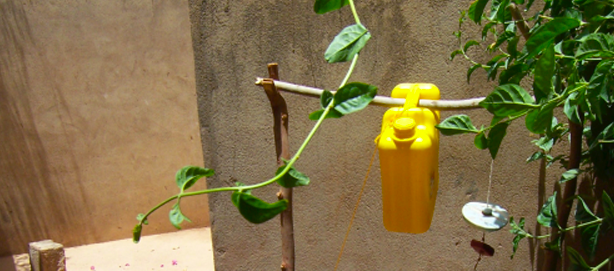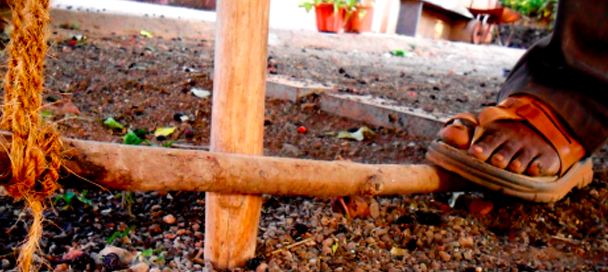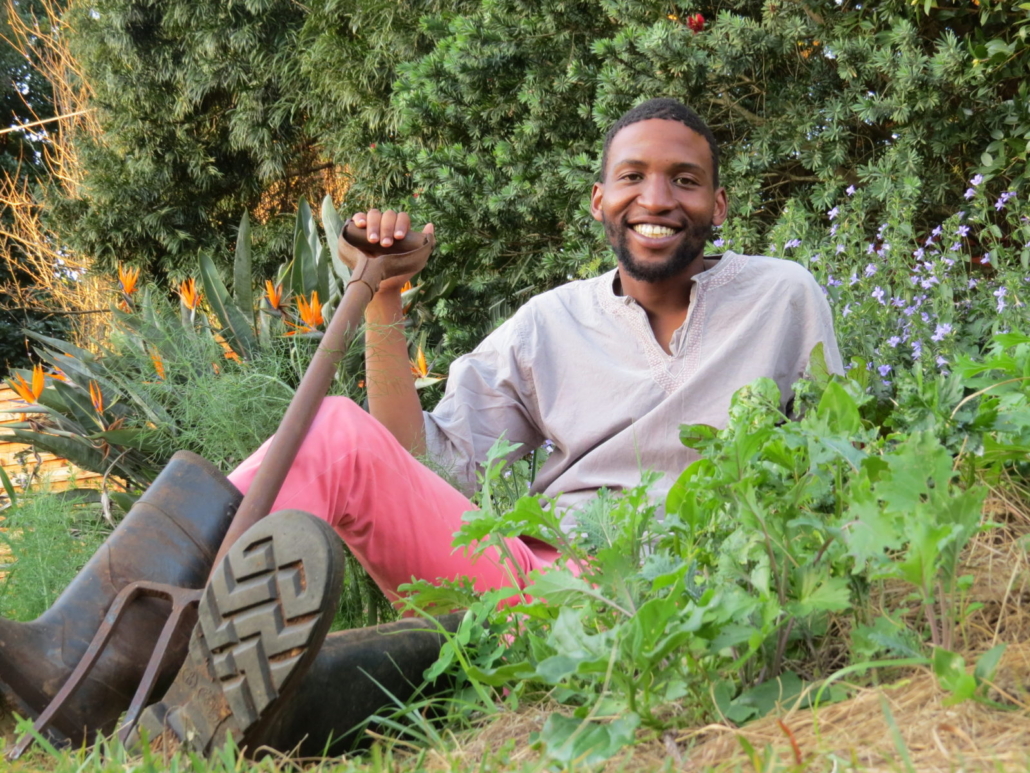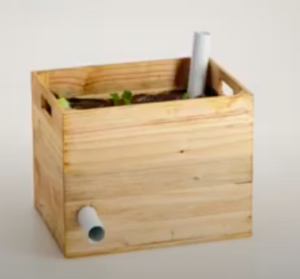This website uses cookies so that we can provide you with the best user experience possible. Cookie information is stored in your browser and performs functions such as recognising you when you return to our website and helping our team to understand which sections of the website you find most interesting and useful.
By Xola Keswa
Today, Africa has the youngest population in the world. Why is this important to note? Because the Earth is inherited by the young people of the world. Today, young Africans are not faced with the same threats that threatened their ancestors such as lions or other wild animals. Instead, we face our biggest existential threat ever: climate change.
Africa’s main environmental challenge is to mitigate the effects of climate change, as due to Africa’s size and position, it will be the most impacted.
This problem should and will initiate creative and dynamic solutions that young Africans will create.
Africans have an innate knack for creating tools, techniques, and methods that help mankind survive. The technologies they discovered thousands of years ago to help survive amongst dangerous creatures in the Savanna of Africa, are still in use now within African traditions and customs. These technologies are how Africa is able to support a large population of about 1.6 billion people.
The innovation that helps sustain Africa today, is the same thing which will ensure her continued survival – and that of the world – through climate change.
Green Technology Innovation in Africa
Groundbreaking science research has been happening in Africa in the field of medicine, much of which is based on indigenous knowledge systems on natural flora and fauna. Much of that research by universities from western countries has been transferred to startup companies in Europe and the US, which have gone on to become successful in competitive pharmaceutical markets.
Due to emerging policies such as the European Green Deal, companies in the Global North will ultimately need to seek alternative sources for investments in innovations in green technology. I propose that foreign investors start to actively invest in research and development for sustainable green technologies in African countries in the same way that they are investing in pharmaceuticals.
Especially within the area of innovation relating to waste and a circular economy, we have become very good at turning waste into upcycled and redesigned products.
These countries can learn a lot from Africa, “the world’s dumping grounds”.
A good example of green technology innovation in Africa is the tippy tap. Many rural areas in Africa don’t have running water from a tap. So, naturally, innovative young Africans found a way around that. They ensured that there is a tap close to homes by making a tap using upcycled materials i.e. old plastic bottles.


A Fair Process of Technology Transfer
I’d now like to introduce myself. My name is Xola Keswa and I am from South Africa. I am a 27 year old environmental and social entrepreneur. I founded my own startup, Organic Matters in 2014, during an internship at Schools Environmental Education Development (SEED).

In 2019, I was selected to participate in international policy and practice research research programme at the University of Cape Town’s (UCT) Global Risk Governance Programme, in cooperation with the South African urban food and farming trust. Through their outreach programme, The Environmental Entrepreneurs Support Initiative, I received philanthropy funding and access to resources and support centres.
Following this research, my startup Organic Matters created a horticultural technology within the UCT Global Risk Governance Programme in partnership with a German University, called the ‘self-watering raised bed’.


The self-watering raised bed relies on wicking so that the plants draw up only the water that they need and none is wasted. You only need to fill up the water reservoir once a week. This technology can be adapted for use within both urban areas and peri-urban areas to mitigate climate change.
I want to help the less fortunate to at least grow their own vegetables, made out of recycled material – to help people become resilient and self-sustainable during these difficult times.
In September, EnsAfrica Africa’s largest law firm facilitated the ‘transfer of technology’, which is an academic term meaning that research and development created in universities is released from the institution for commercialisation.
Now, I own the intellectual property for the self-watering raised bed, meaning that I can retain the value of African innovation in Africa. But my experience is not the norm for young innovators in Africa.
Protecting African Intellectual Property
In the case of the tippy tap, and many others, young Africans are barely aware that they are inventing a method and a product. This is a big problem because these young people are unaware of the legal system and the opportunity to learn from experts to improve and market their products.
I see this as a contributing factor for Africans always finding themselves behind.
Instead, international organisations and universities usually come and extract information from Africa innovators through research, and take it back to Western countries to undergo R&D, create startups, and make licensing agreements. These organisations make a huge profit from such innovations. The Khoisan Hoodia, is an example of what I’m talking about. Research based on the use of the hoodia cactus in African traditional medicine was developed as a potential cure for obesity and taken to the USA and the UK, where patent applications were filed and accredited to western Pharmaceutical companies.
In a just transition, intellectual property would be protected from the very beginning of the creation of knowledge in Africa.
Let’s say a few students conduct research in Africa and create a product. In a just transition, the research should be left in Africa and developed in partnership with its original creators. When the product is developed to the point that it can reach the market, intellectual property rights should be allocated to the relevant person or people who contributed to it from Africa. When royalties are negotiated or letters of intent are drawn up by third parties, young Africans should be listed and acknowledged. This in turn will ensure sharing of useful technology in the world that can improve the wellbeing of people and planet.
Young Africans should be given access to mentorship and support from European and North American countries, to make sure that they understand the protocol of intellectual property law. They should be supported to push their innovations into the mainstream market. This can happen in various different ways in the agriculture, energy, infrastructure, and telecommunications sectors.
Looking Ahead
For two years, while I conducted my research at UTC in and around Cape Town, South Africa, using community based approaches, I would often encounter broken communities, plagued by gang violence and high crime rates.
I came to realise that, much the same way as schools and business centres have helped me learn and become creative, with the right support in terms of mentorship and information, Africans from any background are capable of creating much-needed innovations.
If given a fair opportunity, young Africans can play a major role in creating greener, circular, and more wellbeing-focused economies worldwide.
Wellbeing Economy Correspondents is a series highlighting the firsthand experiences of individuals who have witnessed Wellbeing Economy principles, practices, and policies being implemented in all different contexts around the world. Our correspondents support WEAll’s mission to establish that a Wellbeing Economy is not only a desirable goal, but also an entirely viable one.
the discussion?
Let us know what
you would like
to write about!

